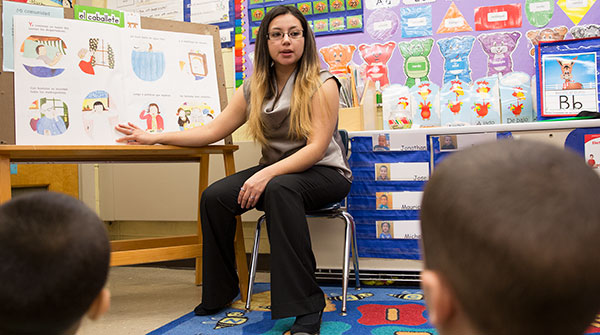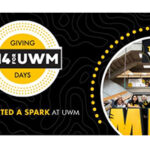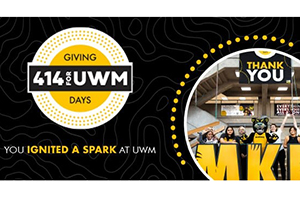
A growing interest in teaching and a desire to help Milwaukee’s Spanish-speaking community started Celina Echeveste on her career path.
But it was a trip to her parents’ native Mexico that helped her discover a particular way, she, as a future bilingual special education teacher, could make a difference.
The 2012 School of Education graduate, now a special education teacher at Forest Home Avenue School in Milwaukee, recalled her unease at seeing how children with special needs were sometimes treated in Mexico.
“I saw parents who were ashamed of these children, and they weren’t getting the help they needed. That observation led her to research Autism Spectrum Disorders (ASD) and non-English speaking families for her master’s degree program – and to create a guidebook that would help them identify the disorders early on.
“I did not want parents here to feel that way about their children just because they didn’t understand or know enough about autism,” Echeveste says. “I wanted to design something I could give to families who were new to the concept of autism and what it is. Many families in the Hispanic community don’t understand what autism is and what it may mean to their children.”
The guidebook – printed and assembled with help from Echeveste’s family – covers the characteristics and initial warning signs of ASD, and includes school and community resources. It contains additional pamphlets printed in Spanish, and Echeveste hopes to have the entire guidebook translated.
Her original research was in partial fulfillment of the requirements for a UWM master of science degree in exceptional education, and the full title was a mouthful: “A Guide for Culturally and Linguistically Diverse Families and Their Children with Autism Spectrum Disorders: From Diagnosis to Education.”
In Echeveste’s special education bilingual K3 classroom at Forest Home Avenue School, it’s more down-to-earth.
The students in Echeveste’s K3 classroom spend each morning working on their fine motor skills and “pre-academics,” such as learning names of colors and listening to stories. The class is conducted in Spanish, and Echeveste and her assistant teacher often play upbeat Spanish songs on a computer. In the afternoon, Echeveste is a resource teacher in a K5 classroom, working with children who need her help, but who remain in their own classroom during the school day.
Echeveste, whose parents immigrated to Milwaukee, is fluent in Spanish, which enhances communication with her young students.
“Some of the K3 students have some English, some no language at all; they are just beginning to say sounds,” Echeveste says. “All K3 instruction is categorical: we have a little bit of everything, including Significant Developmental Delayed (SDD). Here they start learning basics so they can catch up to their peers.”
When students turn 6 years old, they may be tested to determine if they have ASD or another disorder.
It’s at this time that Echeveste’s guidebook proves most useful for families because early evaluation and treatment can make significant improvements in children’s lives.
“Children in Spanish-speaking families and African-American children tend to be diagnosed less often than others. Maybe they don’t have the resources, or they don’t understand what autism is. I have a lot of parents come in and they wish they had the resources earlier because earlier diagnosis means children with ASD can get help earlier,” Echeveste says.
Echeveste started at Forest Home Avenue School three years ago as part of an internship program with the SOE and Milwaukee Public Schools. She did not set out to be a teacher, although she enjoyed teaching religious education when she was younger.
She studied nursing for three years before earning a degree in psychology and doing internships in mental health therapy. She realized how much she loved working with young children, as well as how many of them may have been missing early diagnosis of ASD. She came to UWM to earn her teaching certification in exceptional education and finished her master’s degree in the SOE in 2012.
Says Maureen Keyes, associate professor of exceptional education in the School of Education, and Echeveste’s graduate advisor: “I recall the first time that I met Celina. She heard that I had experience in the area of ASD and took the chance that we could work together. I was impressed with her tenacity, intelligence and commitment from that first meeting, feelings that grew and deepened with every subsequent meeting. The breadth of her commitment and willingness to work hard was invigorating. Teachers love to teach – especially when given the gift of a student that is so willing to learn and work hard – that is what keeps us committed.”
“It was a big change for me coming from a smaller college, but I had a great experience in the SOE,” Echeveste says. “I loved teaching because I love when we start from nothing and make even a little gain for our kids. Sometimes following a simple routine, opening a carton of milk, is an accomplishment.”






